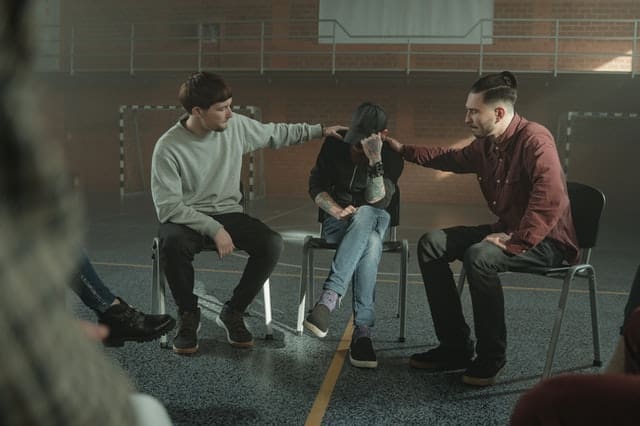Nearly 83 years have passed since the conception of the 12-step program, and it remains one of the most effective methods for addiction recovery. Millions have attested to the effectiveness of this method, and we will look into why that is the case.
What Is The 12-Step Program?
The 12-step program was first developed by Alcoholics Anonymous, an international organization with various peer groups that support each other. The model’s basic premise hinges on two basic premises; people with addiction can support one another in battling their demons and abstain from addiction, and that healing from addiction can only come if one submits to a higher power.
The program has a strong religious element, although there are variations of the program that reinterpret the model to more secular and spiritual leanings. The accountability to a higher power and the kindness of peers is believed to be the reason behind the success of this model.
History of the 12-Step Program
The founder of Alcoholics Anonymous, Bill Wilson, conceived the 12-Step Programme based on his personal experience and vision of dealing with alcoholism. He believed that coping with alcoholism could be made easier for victims if they were given the opportunity to share their stories with one another.
He wrote about his ideas in what is now called the Big Book, which not only provides the basic framework of the program, but millions have used this book as an effective form of self-help.
What Are The 12 Steps of Addiction Recovery?
The 12 steps consist of the following:
- Admitting that one is powerless over their addiction
- A belief that only a higher power can help them
- Turning control over to that higher power
- Maintaining a personal inventory
- Admitting all the wrongdoings committed to that higher power and their peers
- Ready to allow the higher power faults of character
- Requesting the higher power to remove these faults in character
- Listing all the harm done to other people and having the will to make amends
- Consensually contacting those who you have hurt
- Continuing to keep a personal inventory of wrongdoings and admitting when one is in the wrong
- Seeking connection with a higher power through prayer and meditation
- Spreading the message of the 12-step program to other people
Alternatives to the 12 Step Program
There are many variations of the 12 steps of the addiction recovery program. Firstly, since the original 12-step program was based around alcohol addiction recovery, several offshoot groups such as heroin anonymous and gamblers anonymous have appeared to help accommodate the needs of the people battling various distinct forms of addiction recovery.
Native Americans have their version of the 12-step program, which accommodates the indigenous concept of the medicine wheel into the model. Since the original 12-step program was built around Christian ideals, those from other religious or spiritual afflictions may feel uncomfortable accessing it. Therefore, some programs accommodate various spiritual and religious beliefs and people who are agnostic or atheists.
Benefits of Support Groups
Support groups for addiction are an essential part of the 12-step program. People in a particular support group have common worries, experiences, problems, and intersecting views on life. This makes it easier for people to empathize with another and show kindness.
People in support groups with the right therapists tend to feel less judged and isolated, which helps them cope with depression, anxiety, and various other mental illnesses that cause addiction. It helps improve one’s understanding of their difficulty and gives patients a sense of empowerment, optimism, and control over their lives.
Summary
In conclusion, the 12-step program is one of the most successful treatments for addiction out there.
#1 – Founded by the alcohol anonymous’s Bill Wilson in 1938 and hinges on principles of peer support and religiosity
#2 – The teachings of Bill Wilson are all written in the Big Book, which provides a basic model for the implementation of the 12 steps of addiction recovery in support groups and acts as a form of self-help guide for millions.
#3 – 12 steps center around holding your actions accountable to a higher power and holding yourself accountable to those you have hurt.
#4 – While the 12-Step Programme started as a strictly Christian form of addiction therapy, various offshoots of this model accommodate other religious, indigenous, spiritual, and secular ideals.
#5 – Support groups are an essential part of the 12-step program, which helps victims empathize with those of similar struggles and show kindness to themselves and others.
If you are struggling with addiction and the ideas of this program resonate with you, please do check out all the 12-step support groups in your area. It’s okay to ask for help when you need it, and the 12-step program can help you.
Featured Photo by Tima Miroshnichenko from Pexels




